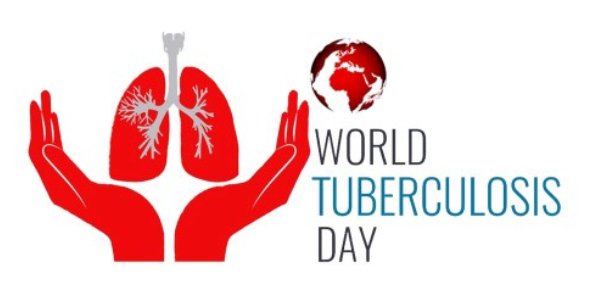By Tijjani Mohammad
The World Tuberculosis Day, one of eight global health campaigns marked by the World Health Organisation (WHO), is commemorated on March 24th to build public awareness about the global epidemic of tuberculosis and efforts towards the eradication of the disease.
The day was declared as World Tuberculosis Day by the WHO in 1882, when Dr. Robert Koch of the University of Berlin’s Institute of Hygiene announced to the scientific community that he had discovered the cause of tuberculosis, expounding the etiology of the virulent disease and thus, opening the way of diagnosing and curing it.
Tuberculosis, also known as TB, is a highly contagious respiratory infection caused by the bacteria known as mycobacterium tuberculosis that attack mainly the lungs of its victims.
Prior to this discovery by Dr Robert Koch, tuberculosis was not only ravaging Europe and the Americas, causing the death of one out of every seven people, but was erroneously thought to be hereditary.
TB remains one of the world’s deadliest infectious killers, spread through inhaling tiny droplets from the cough or sneeze of an infected person. Though a serious contagious disease, it is not only preventable but curable, with proper treatment.
There has been a global effort aimed at tackling this contagious and devastating disease. Its commemoration by the WHO is one of the means of bringing to the fore its impact on national lives and the need for a concerted effort towards its eradication.
The annual themes in this global fight have been a reflection of the various and cumulative aspects in the fight. For example, the theme in year 2000 Forging New Partnerships to Stop TB emphasised the need for collaborative effort in the fight.
In 2001, it was DOTS: TB Cure For All, and in 2001 TB Cure For All while in 2010 it was Innovate To Accelerate Action and It’s Time To End TB in 2020.
The theme for this year, Invest to End TB. Save Lives, conveys the urgent need to invest resources to ramp up the fight against TB and achieve the commitments to end TB made by global leaders.
This is especially critical in the context of the COVID-19 pandemic that has put End TB progress at risk, and to ensure equitable access to prevention and care in line with WHO’s drive towards achieving Universal Health Coverage.
WHO estimates that each day, over 4,100 people lose their lives to TB and close to 28,000 people fall ill with this preventable and curable disease.
Unfortunately, WHO states that the COVID-19 pandemic has reversed years of progress made in the fight to end TB.
According to the WHO Global TB Report 2021, which includes data from more than 200 countries, approximately 1.5 million people died from TB in 2020, up from 1. 4 million in 2019.
Worldwide, the WHO estimates that 9.9 million people fell ill with TB last year, but 4.1 million of those infected were not diagnosed or reported to national authorities. That’s up from 2.9 million in 2019.
It is instructive that this is the first increase in global TB deaths in more than a decade.
Also, WHO attributes the increase in deaths and decline in diagnoses and notifications to the COVID-19 pandemic and resulting lockdowns which have reduced countries’ capacity to provide TB services and interfered with people’s ability to get diagnosed and treated.
Regrettably, many countries have had to shift resources ordinarily used for TB treatment and diagnosis to the COVID-19 response.
This year’s theme reiterates the understanding that more investment in the fight against the disease will save million more lives, prevent its spread and accelerate the eradication of TB epidemic.
Despite significant progress over the last decades in the fight against the disease, unfortunately, TB continues to be the top infectious killer worldwide.
Unfortunately, Nigeria currently ranks fourth in the world and first in Africa, among countries with high prevalence of this killer disease.
The Acting Board Chair, Stop TB Partnership Nigeria, Dr Queen Ogbuji declared recently in Abuja at the Pre-World TB Conference that over 156,000 Nigerians die of tuberculosis annually. This she said translates to 18 Nigerians die of tuberculosis –related disease every hour and 432 daily.
No doubt, this high fatality from a disease that is not only treatable, curable but preventable also, should not be allowed to continue on this dangerous curve.
As usual in our environment, a lot of factors ranging from ignorance, poor environment, inadequate medical facilities, late diagnosis, cultural biases to poor budgetary provision and actual fund release accounts for this high fatality rate of the disease.
On the challenges of finance in the fight against TB in Nigeria, Dr Ogbuji declared ‘that of the $373 million needed for TB control in Nigeria in 2020, only 31 per cent was available to all the implementers of control activities comprising seven domestic funding and 24 percent donor funds.
It was the consensus, therefore, that there must be a concerted effort towards addressing the 70% funding gap for TB.
As Nigeria joins the world to commemorate this day, we must ensure the continuation of concerted effort towards the identification of unreported TB cases so as to prevent a possible spread.
Also, in consonance with this year’s theme, all tiers of government must commit to investing more in the health sector and specifically, in the fight against TB.
Regrettably, most Primary Health Centres (PHC) that ought to be the first point of call for TB patients are at best, in comatose.
Since TB is thrives mostly in poor environment and enhanced by population congestion, most times, those affected resort to presumptuous self medication thereby giving rise to drug resistance at a later stage.
Consequently, more and sustained investments are necessary to strengthen health system at all levels, upscale our pandemic preparedness and end preventable deaths.
More importantly, governments must get more involved in the campaign against the disease, especially, in terms of screening, as this will provide avenues for early detection, treatment and curbing its spread.
Mohammad works with Federal Ministry of Information, Abuja

 Join Daily Trust WhatsApp Community For Quick Access To News and Happenings Around You.
Join Daily Trust WhatsApp Community For Quick Access To News and Happenings Around You.


